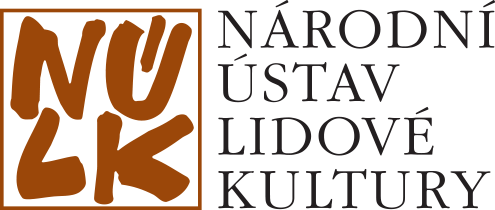Library
The National Institute of Folk Culture´s library is a basic library with specialized books and publications; the services are defined and specified by Library Regulations. On 15 April 2003, the library was inscribed on the register of Czech Ministry of Culture´s libraries under registration number 5214/2003.
In accordance with the Organizational Chart, the library provides information services, it makes specialized literature accessible, and it provides professional librarian, bibliographic and research services as well as inter-library loans. The literature from foreign expert institutions is received based on the exchange for the Journal of Ethnology sent to those institutions.
The library currently has more than seventeen thousand items, especially specialized publications focussed on ethnography, ethnology, folkloristics, history, museology, folk music, and folk verbal art. The kinds and types of documents contained in the library include a wide spectrum of monographs, anthologies, folk song collections, specialized journals, yearbooks, annual reports, newspapers, and other types of domestic and foreign periodicals. Documents for the library are received by purchase, donations, inland and abroad exchange, and translocation of library collections.
The National Institute of Folk Culture´s library enables visit and presence loans to the research fellows upon an individual agreement (Phone: 518 306 611, Email: info@nulk.cz).
Online Catalogue of NULK Library
Electronic Library
is one of the research and development projects at the National Institute of Folk Culture. The electronic library preferably tries to make scientific (periodical and non-periodical) publications about folk culture accessible to the professional and the amateur public. These are mostly printed materials that are hardly available or even unavailable within the network of libraries and electronic media. They are available only for presence studying in study rooms, and due to their uniqueness resulting in the permanent use of them, the materials are often damaged, or even some parts of them are missing. The digitalization of those materials shall ensure not only content archiving, but it shall make the materials available to the public in full and good quality.
As a novelty, we have included also some of present outcomes from the professional activity of the National Institute of Folk Culture in the electronic library, as it would be economically less favourable to publish them in print. On the other hand, it would be shame to hold those documents “forgotten” in archives. Publication thereof in the electronic form it not so cost-consuming and it does not burden the storage rooms; its great advantage is the opportunity to use hypertext links and to search for particular information in an uncomplicated way.
